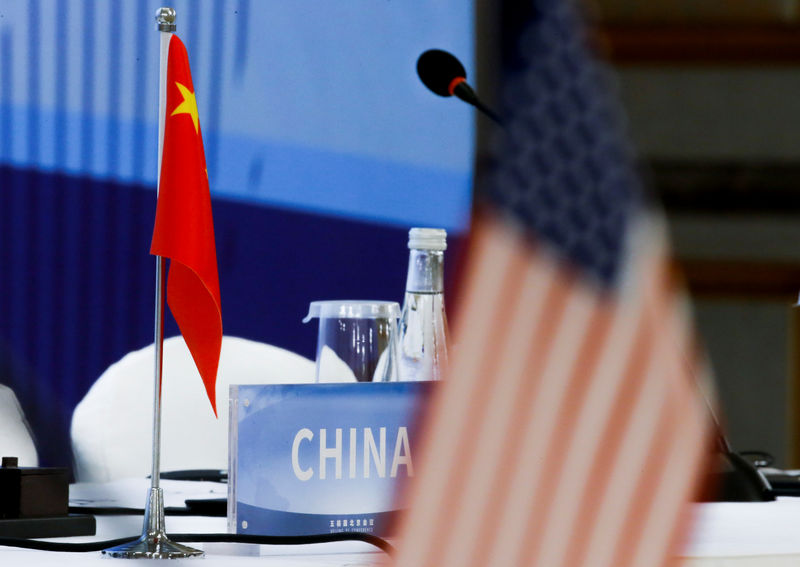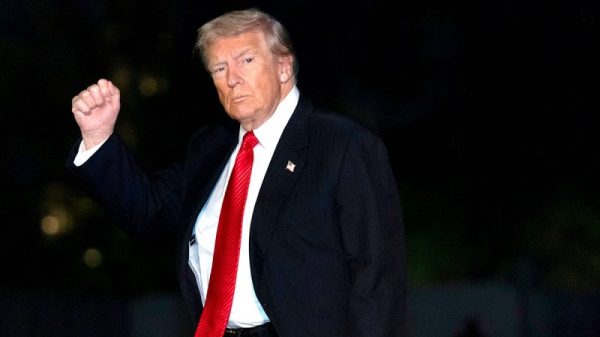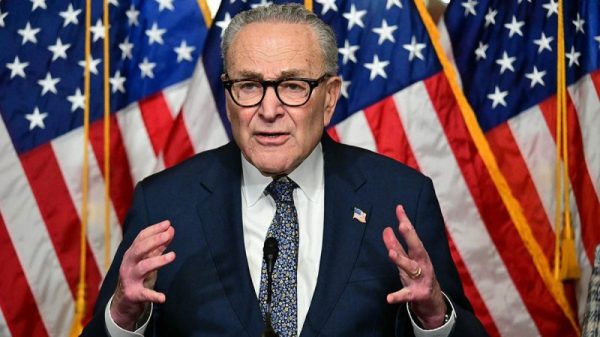
Investing.com– A renewed U.S.-China trade conflict may be on the horizon as President-elect Donald Trump threatens new tariffs on Chinese imports, Bank of America (BofA) analysts said in a note.
Trump announced plans for a 10% tariff on Chinese goods and a 25% levy on imports from Mexico and Canada, citing concerns over fentanyl trafficking and immigration. BofA analysts expect these measures to intensify trade tensions and disrupt bilateral trade flows if implemented in early 2025.
“In theory, if Trump opts to adopt the executive order route to impose unilateral tariffs, the shock could come in shortly after he assumes office in early Jan. Else, if he instead chooses to ask Congress to enact new legislation, the tariff would kick in later but be harder to revoke,” BofA analysts wrote.
The proposed tariffs echo the trade war of 2018-2020, which saw tariffs imposed on over half of U.S.-China trade, causing bilateral trade volumes to plummet. Chinese exports to the U.S. declined as tariffs increased, although Beijing managed to redirect some goods to alternative markets.
BofA analysts predict a similar trajectory if new tariffs are enacted. In a worst-case scenario, where a 60% blanket tariff is applied to Chinese imports, U.S. businesses dependent on Chinese goods could face severe disruptions. Key sectors, such as festive products and portable lamps, which source up to 90% of their imports from China, may struggle to find alternatives.
China is likely to respond cautiously, according to BofA. Although tit-for-tat tariffs are possible, China’s smaller import volume from the U.S. limits the impact of such measures. Other options, like currency devaluation or restricting U.S. businesses in China, carry significant economic risks for Beijing, including potential capital outflows and diminished investor confidence.
Instead, Chinese policymakers may focus on stimulating domestic demand and exploring energy trade deals to mitigate losses. An increase in imports of U.S. goods, particularly liquefied natural gas (LNG) and oil, could be a negotiating tool to de-escalate tensions, BofA suggests.
While Trump’s stance reflects bipartisan support for reducing reliance on Chinese imports, BofA analysts see potential for negotiations. High U.S. inflation may reduce public tolerance for sweeping tariffs, which could exacerbate living costs and strain supply chains.

































